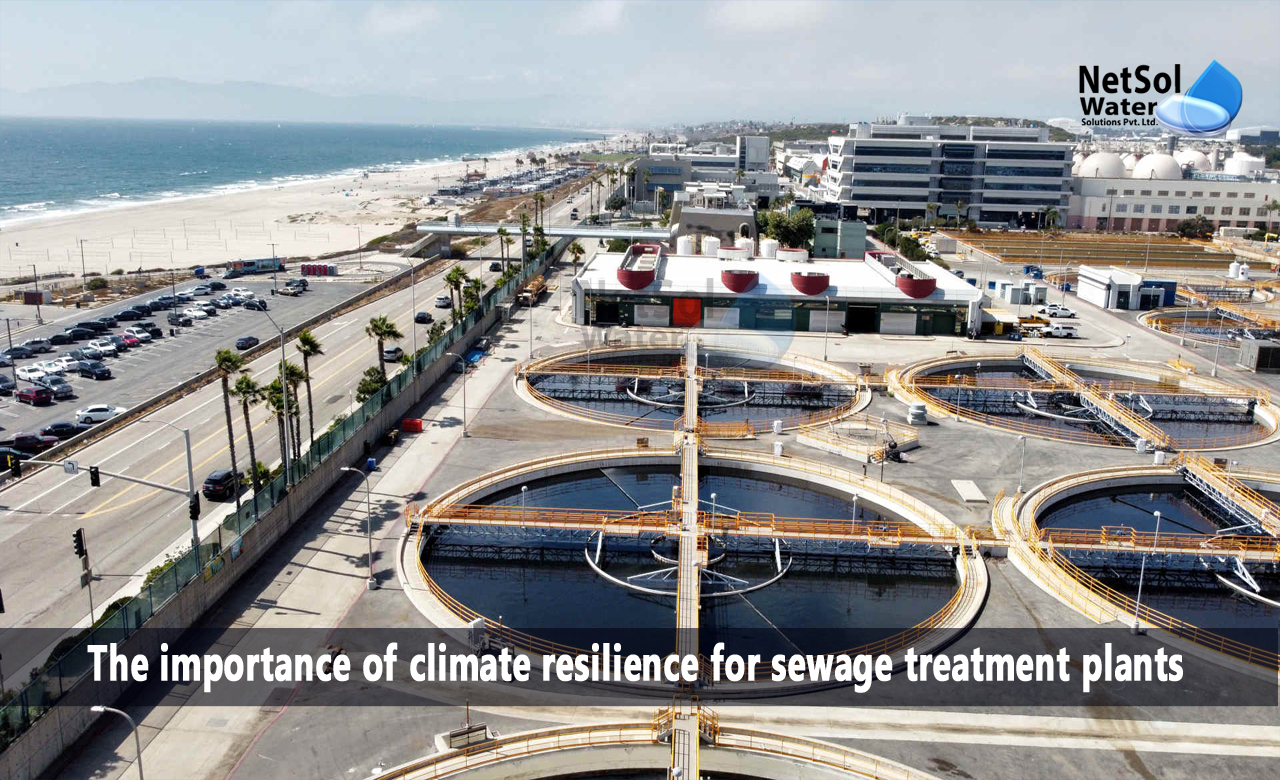What is the importance of climate resilience for STP Plants?
Climate change poses significant challenges to infrastructure systems worldwide, and sewage treatment plants (STPs) are no exception. Rising sea levels, increased storm intensity, and changing precipitation patterns can impact the effectiveness and resilience of STPs. To ensure the continuous and reliable operation of sewage treatment facilities in the face of climate-related risks, the development and implementation of climate-resilient infrastructure strategies are crucial.
In this blog, we will explore the importance of climate resilience for sewage treatment plants and discuss adaptation strategies to prepare for the challenges of the future.
Understanding Climate Risks for Sewage Treatment Plants
Climate change impacts can directly affect sewage treatment plants and their surrounding areas. Key climate-related risks include:
- Increased Flooding: Rising sea levels and extreme rainfall events can lead to higher flood risks, potentially overwhelming sewage treatment plants and causing system failures.
- Intensified Storms: More frequent and intense storms can disrupt power supply, damage infrastructure, and disrupt the normal operation of STPs.
- Drought and Water Scarcity: Changing precipitation patterns can result in prolonged droughts and water scarcity, affecting the availability of water resources for STPs.
- Salinization of Water Sources: Rising sea levels can cause saltwater intrusion into freshwater sources, impacting the quality and suitability of water for treatment processes.
Adaptation Strategies for Climate-Resilient Sewage Treatment Plants
- Climate Risk Assessment: Conducting a comprehensive climate risk assessment is the first step in developing adaptation strategies for STPs. This assessment should evaluate the vulnerability of the facility to climate-related hazards, identify potential impacts, and prioritize adaptation measures.
- Infrastructure Upgrades and Retrofits: Climate-resilient infrastructure design and upgrades are essential for sewage treatment plants. This includes constructing flood protection measures, improving stormwater management systems, and ensuring the structural integrity of critical components. Retrofitting existing infrastructure can help enhance resilience and mitigate climate-related risks.
- Diversification of Water Sources: To address water scarcity concerns, STPs should explore alternative water sources such as reclaimed water, rainwater harvesting, and desalination. Diversifying water sources reduces reliance on freshwater resources and enhances the resilience of the facility in the face of changing precipitation patterns.
- Green Infrastructure Integration: Incorporating green infrastructure elements, such as vegetative buffers and bioswales, can help manage stormwater runoff, reduce flood risks, and improve the overall resilience of STPs. These nature-based solutions provide multiple benefits, including water filtration, carbon sequestration, and habitat creation.
- Enhanced Monitoring and Early Warning Systems: Implementing advanced monitoring systems, including sensors, real-time data collection, and predictive analytics, can improve early detection of climate-related risks. Early warning systems enable proactive decision-making, allowing STP operators to respond quickly to changing conditions and mitigate potential disruptions.
- Collaboration and Knowledge Sharing: Collaboration between STP operators, government agencies, research institutions, and community stakeholders is crucial for sharing knowledge, best practices, and lessons learned. The exchange of information and experiences can help identify effective adaptation strategies and build collective resilience.
Conclusion
Climate change poses significant challenges to sewage treatment plants, necessitating proactive measures to enhance their resilience. By adopting climate-resilient infrastructure strategies, STPs can mitigate the impacts of rising sea levels, extreme weather events, and water scarcity. Through infrastructure upgrades, diversification of water sources, green infrastructure integration, enhanced monitoring systems, and collaborative efforts, sewage treatment plants can adapt to climate change and continue to provide essential services for public health and environmental protection. Investing in climate resilience is not only crucial for the long-term sustainability of STPs but also ensures the well-being of communities in the face of a changing climate.
Netsol Water is Greater Noida-based leading water & wastewater treatment plant manufacturer. We are industry's most demanding company based on client review and work quality. We are known as best commercial RO plant manufacturers, industrial RO plant manufacturer, sewage treatment plant manufacturer, Water Softener Plant Manufacturers and effluent treatment plant manufacturers. Apart from this 24x7 customer support is our USP. Call on +91-9650608473, or write us at enquiry@netsolwater.com for any support, inquiry or product-purchase related query.



